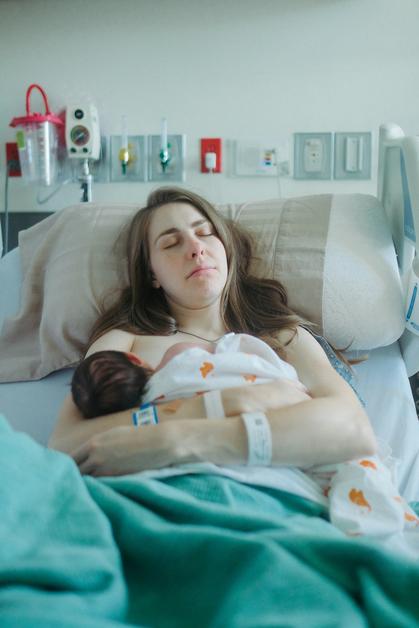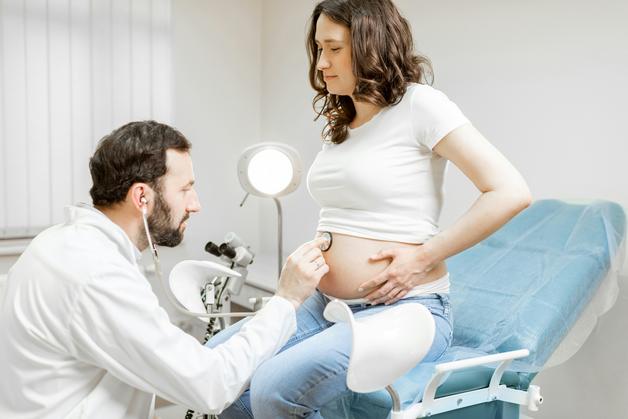Pregnancy carries with it a constant background of questions, small uncertainties, and phases that oscillate between joy and concern. Diarrhea during pregnancy—though far less discussed than constipation—has a way of catching expectant parents off-guard. The sudden rush to the bathroom, perhaps right after a perfectly routine meal; the odd gurgle in the tummy, or a vague sense of abdominal unrest—these can quickly become sources of worry. Is it a dietary quirk? Something hormonal? Or is there a deeper risk for you or the developing baby?
While digestive disturbances are practically an everyday topic during pregnancy, the specifics of diarrhea during pregnancy deserve special attention, not only for comfort but also for safety. What causes these unexpectedly urgent trips to the loo? When should you start to worry about dehydration or other risks? Most importantly—what can you actually do at home, and when is it essential to consult your doctor?
Let’s untangle the facts, look closely at symptoms, understand the underlying causes both mild and concerning, and see how to journey safely through this part of the prenatal experience.
What is diarrhea during pregnancy: core features and how it may present
Diarrhea during pregnancy is clinically defined as three or more episodes of loose, watery stools within a single 24-hour window. The texture changes rapidly, often bringing an urgent need to use the bathroom. Unlike the sluggish gut and hard stools linked to high progesterone, here the bowels seem to shift gear—sometimes suddenly, sometimes with an ominous gurgle.
There’s no single way this condition presents: some notice mild abdominal cramps, others feel bloated (abdominal distension), sometimes there’s a fleeting wave of nausea, or even mild chills that can make you want to reach for a shawl. A point to remember: increasing stool frequency in pregnancy isn’t always pathological, but a sudden and striking change—especially coupled with other digestive changes—should not be brushed aside.
Key symptoms to watch for:
- Three or more watery stools in 24 hours
- Sudden urge for bowel movement, often hard to delay
- Cramping or abdominal pain, sometimes quite sharp
- Bloating; uneasy fullness in an already expanding abdomen
- Persistent thirst, dry mouth, or urine that turns notably dark (warning signs of dehydration)
- In fewer cases, blood/mucus in stool or fever
You might be asking—why exactly does diarrhea during pregnancy even happen, when hormones are far more famous for causing constipation? Let’s clarify.
Major causes of diarrhea during pregnancy
Hormonal orchestration
Pregnancy is a hormone-driven spectacle. While most associate progesterone with slowed bowels and constipation, periods of hormonal fluctuation, particularly with sudden surges of prostaglandins towards the end of pregnancy, can actually accelerate bowel movements. It’s almost as if the body, in rehearsals for labor, gently “empties out” the intestines. For some, this process brings higher bowel motility and diarrheal episodes, especially nearer to term.
Dietary shifts and new habits
A newly-revised meal plan, more fibre, sudden enthusiasm for tropical fruits or that extra glass of milk—diet changes can easily overwhelm a gut used to its old routines. Iron supplements, much prescribed during pregnancy, can sometimes function as a double-edged sword: while they commonly provoke constipation, in sensitive individuals, especially with certain formulations, they trigger loose stools instead. Have you just tried quinoa, or increased your daily green leafy intake? Sometimes, even well-meant choices can prompt bowel adaptation stress, leading to diarrhea during pregnancy.
Infections and foodborne risks
The immune system in pregnancy adjusts subtly to protect the fetus, but this can translate into higher vulnerability to infectious agents. Gastrointestinal infections—be they viral (norovirus, rotavirus), bacterial (Salmonella, E. coli), or from food poisoning (improperly cooked meat, unpasteurised dairy)—can all cause sudden-onset diarrhea during pregnancy. Unlike dietary causes, these often strike with fever, severe cramps, or sometimes even vomiting. When baseline hygiene, safe food practices, or water purity are in question, risk rises further.
Emotional and functional gut influences
Can emotional stress or anxiety about parenthood really cause physical symptoms? Absolutely. For those with a history of irritable bowel syndrome or known digestive sensitivities, emotional tension may practically “stir up” the bowels. Psychological shifts, combined with altered sleep or routine (so common in pregnancy), can provoke real, organic digestive responses.
Medications and supplementation
Beyond diet, many medications are part of the pregnancy journey. Antibiotics, while sometimes indispensable, may upset the fine balance of gut flora. Some anti-acids or vitamin complexes might also have a laxative effect in sensitive individuals.
Additional triggers
- Newly discovered sensitivities, like lactose intolerance, emerging with higher milk intake
- Travel to new environments, risk of traveller’s diarrhea from unsafe water/food
- Pre-existing inflammatory bowel conditions (for example, Crohn’s, ulcerative colitis) occasionally worsen during pregnancy
When is diarrhea during pregnancy a warning sign?
Frequent and mild episodes of diarrhea during pregnancy are typically self-limited, but certain features suggest a need for heightened alertness:
- Persistence beyond 48 hours without improvement
- High fever (above 39°C/102°F)
- Marked dehydration: very little urination, intense thirst, dry lips and skin, dizziness
- Blood or mucus in stool
- Severe or unremitting abdominal pain
- Unexplained weight loss
- Preterm contractions (before 37 weeks), unusual vaginal discharge, or reduced fetal movements
When these are present, or even when there is just a persistent sense that something is “not right,” timely medical assessment is vital—not only for maternal well-being but also fetal safety.
Pregnancy stage matters: when diarrhea during pregnancy changes meaning
Early pregnancy is peppered with wild hormonal weather; here, mild diarrhea often results from adaptation to dietary changes or supplements. In contrast, in late pregnancy (the final weeks), increased uterine and intestinal muscle activity—prompted by prostaglandin hormone spikes—often leads to looser stools. Sometimes, this is taken as a very early sign that labor is approaching, especially if coupled with back pain or mild contractions.
But if these signs appear before full term (preterm labor), particularly if accompanied by lower abdominal pain or vaginal discharge, immediate medical consultation is warranted.
The main risk: dehydration and its ripple effects
What stands out as the greatest risk with diarrhea during pregnancy? Dehydration. Rapid fluid loss lowers blood volume, potentially reducing placental blood flow and depriving the baby of consistent oxygen and nutrients. Electrolyte imbalances—for example, loss of sodium or potassium—may then trigger muscle cramps, increased fatigue, or in rare cases, more severe health consequences like blood pressure instability.
Very rarely, severe foodborne infections (for example, listeriosis) can cross the placenta, leading to pregnancy complications such as preterm birth or, in exceptional cases, fetal infection. Maternal dehydration or significant undernutrition, if prolonged, increases risks to fetal growth and well-being.
Safe management at home: practical strategies
When confronting diarrhea during pregnancy, immediate priorities revolve around comfort and fluid replacement. Begin with small sips of water, clear herbal teas, or—if available—oral rehydration solutions. Avoid caffeinated sodas, energy drinks or heavy sugary juices, which can worsen fluid loss.
Bland, binding foods are recommended:
- White rice, plain toast, soft bananas, simple applesauce, softly cooked carrots or potatoes
- Avoid raw vegetables, high-fat/street food, highly spiced dishes, and any unfamiliar meats
Hygiene is not a cliché here: frequent hand washing before meals, after toilet use, and careful washing of fruits, vegetables, and utensils serve as your most powerful everyday preventive weapon. For those traveling, stick to bottled or thoroughly boiled water, and peel fruit rather than biting into it skin-on.
What about over-the-counter medicines? Never take antidiarrheal medications (like loperamide) without consultation—a number of them are not permitted in pregnancy. Medical probiotics may help in some circumstances but should only be used on advice from a healthcare provider.
Rest is equally important. The body, facing digestive stress, benefits from minimising additional physical load. Give yourself permission to slow down, restore, and gradually reintroduce your normal pattern of eating as symptoms settle.
Prevention: making diarrhea during pregnancy less likely
It may not always be possible to avoid every episode. But adopting sensible preventive measures makes a clear difference:
- Wash hands thoroughly, always before food and after the toilet
- Clear preference for pasteurised dairy, well-cooked meat and eggs
- Small, frequent meals rather than large servings, reducing digestive distress
- Gradually introduce new foods, rather than all at once
- Avoid street food or foods with questionable freshness
- Mindful stress management: gentle walks, deep breathing, or yoga tailored for pregnancy help buffer the emotional effects on digestion
- Ongoing prenatal care, with regular check-ins, allows small concerns to be caught before they spiral
Key Takeaways
- Diarrhea during pregnancy, defined as three or more loose stools per day, can occur at any gestational stage but should never go unnoticed
- Hydration stands as the shield—drink orally, little and often, with clear liquids and—if needed—medical rehydration solutions
- Focus on bland, familiar foods; avoid items known for irritating the gut or that are of uncertain safety
- Meticulous hand hygiene and careful food selection powerfully reduce the risk
- Avoid self-prescribing; always check with your healthcare provider before taking anything for diarrhea
- Warning signs: persistent fever, blood in stool, intense pain, signs of dehydration, or symptoms of preterm labor—these are red flags for a rapid consultation
- Resources abound—be it the advice of your medical team, your pharmacist, or supportive apps like application Heloa, which offers personalised guidance and free health questionnaires for children
In every pregnancy journey, access to accurate, practical information and compassionate care can transform even moments of discomfort into signals for nurturing wellbeing.
Questions Parents Ask
Can diarrhea during pregnancy be a sign of miscarriage?
It’s a common worry, especially if digestive troubles spring up in early pregnancy. Usually, diarrhea during pregnancy alone points to hormonal shifts, dietary changes, or occasional stress. However, if loose stools are joined by severe lower abdominal pain or vaginal bleeding, especially in the first trimester, there is a possibility—though rare—that this signals risk for miscarriage. On its own, diarrhea is seldom a warning for miscarriage. If any cluster of concerning symptoms appears together, contacting a healthcare provider brings reassurance and clarity.
Is diarrhea in the second or third trimester dangerous for my baby?
Digestive changes, including diarrhea, aren’t rare as pregnancy advances. Most episodes are short-lived, mild, and not dangerous—focus should remain on steady hydration and a gentle diet. In some cases, especially if symptoms persist, cause marked dehydration or are joined by fever, severe pain, or feeling faint, it’s time to get a medical opinion. Severe, prolonged fluid loss can impact placental blood flow, so staying attentive really matters.
What can I do at home if I have mild diarrhea during pregnancy?
A little bit of loose motion might feel inconvenient, but there are simple comforts that help: frequent sips of clean water, bland foods (like plain rice, banana, or soft toast), and as much rest as the day allows. Avoid dairy and fatty or spicy foods temporarily. If the symptoms seem minor and hydration stays possible, waiting and watching often works. At the same time, keeping a close watch for any sign of worsening—like fever, blood in stools, or weakness—will help decide if prompt medical support is needed. And when in doubt, a quick call to your provider remains the best way forward.









